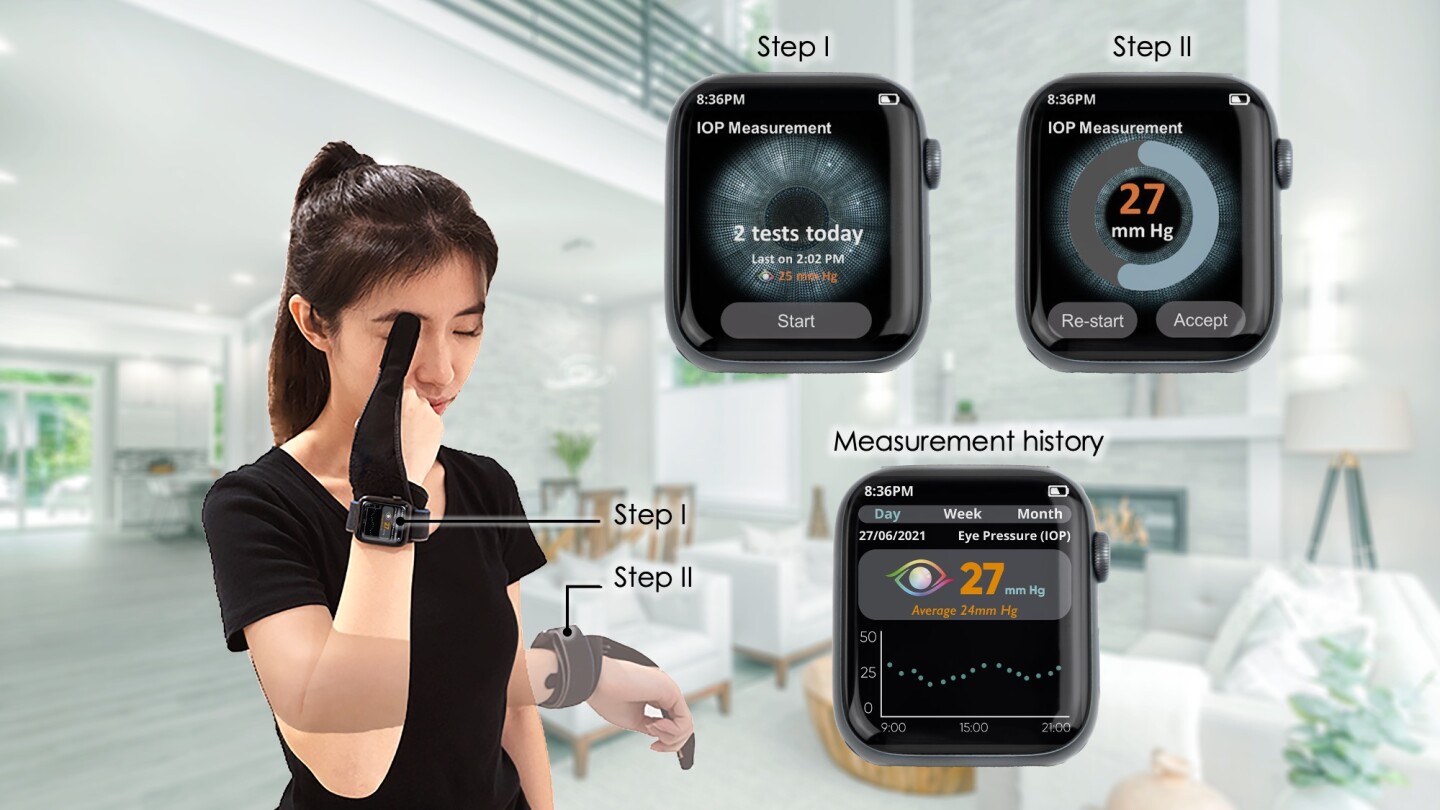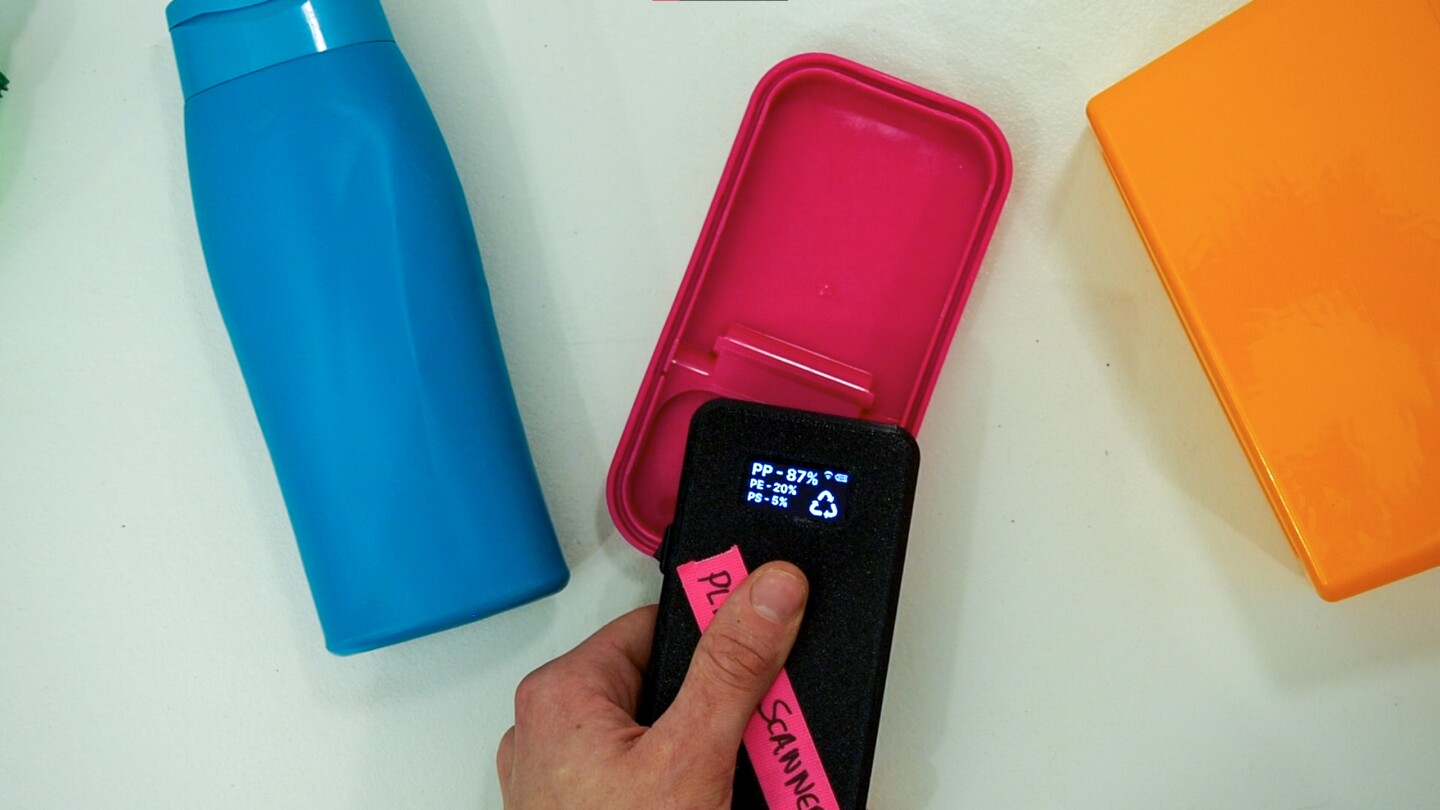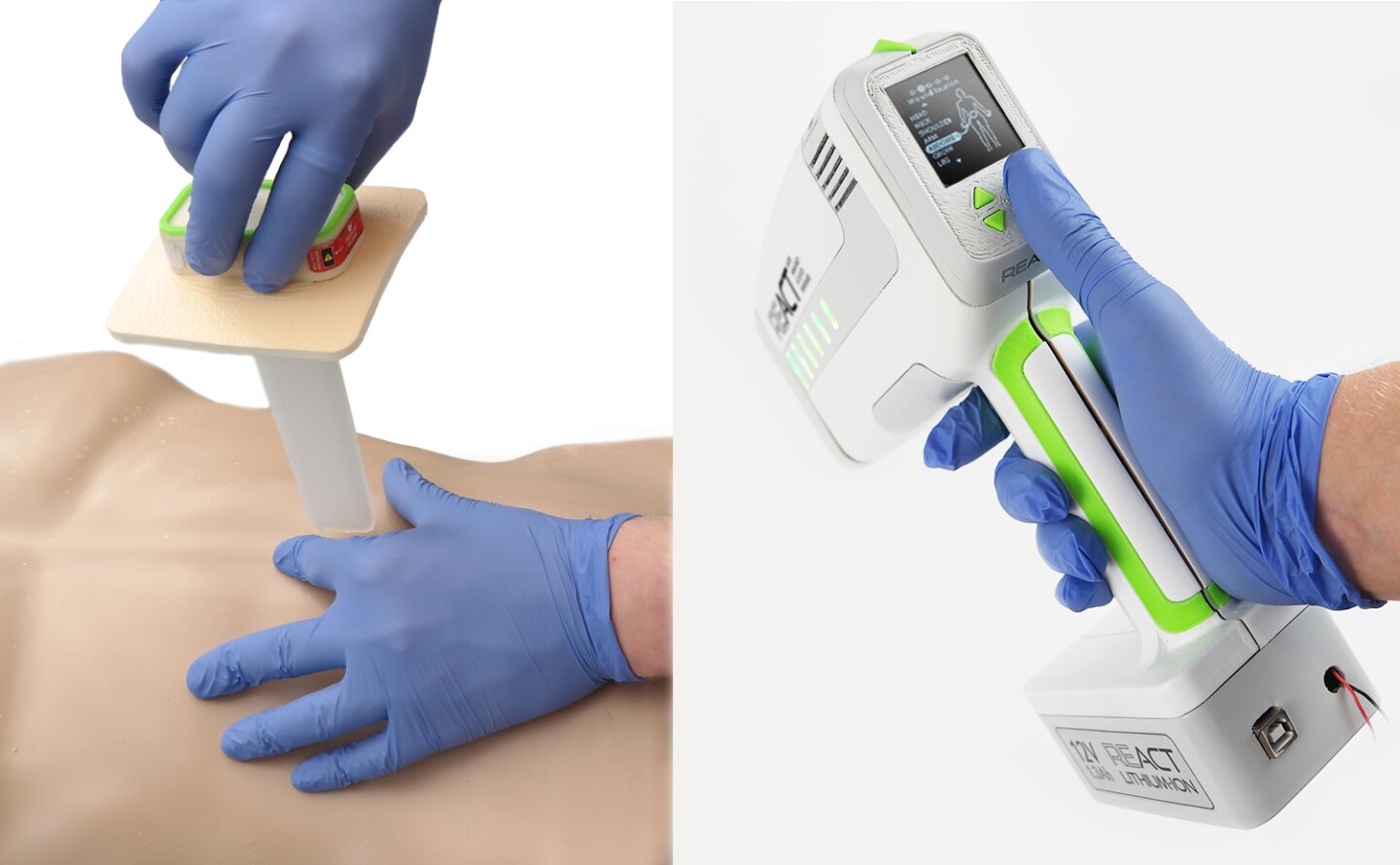A wearable sensor for eye pressure sensing, a plastic scanner and new treatment solution for stab wounds have triumphed as global winners of the 2021 James Dyson Award. The teams behind the inventions, which each earn US$40,000 to continue developing their technologies, caught the eye of the competition judges with their impressive concepts designed to solve real-world problems.
Each year, the James Dyson Award calls on design and engineering students around the world to put forward concepts that solve a clear problem. Last year we saw a simple home test for breast cancer and a solar-energy-harvesting window claim top honors, and for the 2021 edition, the judges have awarded three global winners for the first time, chosen for clever yet simple engineering principles as well as the technical viability of the projects.
International Winner

James Dyson Award
Regular eye exams that measure intraocular pressure are one of the key ways clinicians can detect and treat glaucoma, a leading cause of blindness in older adults. Kelu Yu, Si Li and David Lee from the National University of Singapore set out to develop an at-home testing technology to enable at-risk people to check their intracoular pressure on a regular basis. Their efforts culminated in a special glove called Hopes (Home Eye Pressure E-skin Sensor).
The device features a novel sensor the team says can capture dynamic pressure of the eye with with great precision when the user applies a fingertip to the center of the eyelid. This data is processed by machine learning algorithms to gauge the user’s intraocular pressure in real time, which is then displayed on an attached smartwatch and can be shared to paired devices over Bluetooth.
The team is now working with clinicians at National University Hospital in Singapore to gather data on patients’ eye pressure to fine tune the machine learning algorithm. They hope to carry out clinical trials and eventually work with hospitals to conduct pilot programs, and then seek funding to bring the technology to market.
Sustainability winner

James Dyson Award
The world produces massive amounts of plastic each year, very little of which is recycled. Part of the trouble is distinguishing one type of plastic from another, which is a key step in recycling the material to be reborn as new products. Though this sorting can be done by hand, this manual labor is very time-consuming and no match for the mountains of plastics discarded every day.
Jerry de Vos from Delft University of Technology in the Netherlands has set out to help reduce plastic pollution with a low-cost, handheld scanner that detects different types of plastic in real-time. The technology is based on the infrared spectroscopy techniques used in large sorting facilities in Europe, but uses a cheaper version called discrete infrared spectroscopy, which is said to still be capable of identifying most types of common plastic.
According to de Vos, this results in a drastic reduction in the cost of the scanner, and makes it an affordable solution for developing countries where recycling infrastructure is lacking. He is making the design for the Plastic Scanner open source for anybody to use, and describes the assembly process and usage as a breeze. He is also developing new prototypes and plans to carry out pilot projects testing the technology in low-resource settings.
Medical Winner

James Dyson Award
Looking to offer first responders an effective new tool for treating stab wounds, Joshua Bentley from the UK’s Loughborough University has developed a handheld device designed to rapidly stem bleeding. For his inspiration, the designer points to advice suggesting the impaled object shouldn’t be removed in a stabbing scenario as it applies pressure internally and slows bleeding, with his gun-like React device designed around this same principle.
The device is loaded with a medical-grade silicon balloon that is inserted directly into the wound by a first responder, and squeezing the trigger then causes the balloon to inflate to a desired pressure. Once inflated, the balloon applies internal pressure to slow bleeding, and according to Bentley, can prevent hemorrhaging in under a minute. He has filed a patent for the technology in hopes of bringing it to market a few years down the track.
Source: James Dyson Award
Source of Article